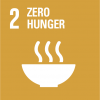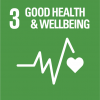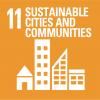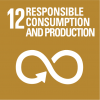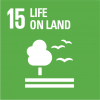Feeding the community is an essential engine for the city's economy. However, the activities involved in food production, their logistics and resulting waste, are responsible for a large amount of greenhouse gas emissions.
Currently, one third of the world's food is lost or wasted[1] . The carbon footprint generated from the production of wasted food is estimated at 3.3 million tons of CO2e, released into the atmosphere every year.
According to a study by the Spanish Confederation of Consumer and User Cooperatives (HISPACOP) and endorsed by the National Institute of Consumption (INC) (2013), the average food waste generated per household in Spain is 1.3 kg per week. In other words, Spanish households waste 1.5 million tons of food per year.
Source: Government of Spain
Awareness of this situation, and of the true cost of food, is the first step in finding the solution. This means accelerating the transition from linear food production to a circular model, applied to both industry and consumption.
This shift in focus must also entail the promotion of value addition at source. The transformation of raw materials from local producers can create new employment opportunities and lead to a more rational use of our resources. This way, we can avoid further emissions from transport and logistics.
We must explore the potential of developing sustainable eating habits. This means promoting the consumption of local food, exercising quality over quantity, and adopting ecological farming methods that consider our planet’s biodiversity and show ethical commitment.
Send us your concerns, proposals for actions, regulations, incentives, problems, or needs. All contributions will be valued and considered for the construction of our roadmap.
